- Home
- Paul Christopher
The Templar Cross
The Templar Cross Read online
Table of Contents
Title Page
Copyright Page
Dedication
Chapter 1
Chapter 2
Chapter 3
Chapter 4
Chapter 5
Chapter 6
Chapter 7
Chapter 8
Chapter 9
Chapter 10
Chapter 11
Chapter 12
Chapter 13
Chapter 14
Chapter 15
Chapter 16
Chapter 17
Chapter 18
Chapter 19
Chapter 20
Chapter 21
Chapter 22
Chapter 23
Chapter 24
Chapter 25
Chapter 26
Chapter 27
Chapter 28
Chapter 29
Teaser chapter
TREASURE OF DOOM
Carefully fitted into custom-made Styrofoam slots was a row of five gold bars, each one approximately five inches long and two inches wide. Japrisot reached into the box and pried one of the bars out of its nest. It looked about half an inch thick. Holliday reached into the box and took another one out. It was heavy in his hands, almost unnaturally so, and it had an odd, greasy feel to it that was unaccountably repellant.
The bar was rudely made, the edges rounded and the surface slightly pitted. “1 KILO” was stamped into the upper quadrant, the letters E.T. in the middle and an instantly recognizable impression in the lower end of the bar: the palm tree and swastika insignia of the German Afrika Korps of the Third Reich. There was no serial number or any other coding on the bar.
“Fifty kilos a box, ten boxes, five hundred kilos,” said Japrisot quietly.
“One thousand one hundred and three pounds,” murmured Rafi. “A little more than half a ton.”
“Dear God,” whispered Holliday, “what have we stumbled onto?”
ALSO BY PAUL CHRISTOPHER
Michelangelo’s Notebook
The Lucifer Gospel
Rembrandt’s Ghost
The Aztec Heresy
The Sword of the Templars
SIGNET
Published by New American Library, a division of
Penguin Group (USA) Inc., 375 Hudson Street,
New York, New York 10014, USA
Penguin Group (Canada), 90 Eglinton Avenue East, Suite 700, Toronto,
Ontario M4P 2Y3, Canada (a division of Pearson Penguin Canada Inc.)
Penguin Books Ltd., 80 Strand, London WC2R 0RL, England
Penguin Ireland, 25 St. Stephen’s Green, Dublin 2,
Ireland (a division of Penguin Books Ltd.)
Penguin Group (Australia), 250 Camberwell Road, Camberwell, Victoria 3124,
Australia (a division of Pearson Australia Group Pty. Ltd.)
Penguin Books India Pvt. Ltd., 11 Community Centre, Panchsheel Park,
New Delhi - 110 017, India
Penguin Group (NZ), 67 Apollo Drive, Rosedale, North Shore 0632,
New Zealand (a division of Pearson New Zealand Ltd.)
Penguin Books (South Africa) (Pty.) Ltd., 24 Sturdee Avenue,
Rosebank, Johannesburg 2196, South Africa
Penguin Books Ltd., Registered Offices:
80 Strand, London WC2R 0RL, England
First published by Signet, an imprint of New American Library,
a division of Penguin Group (USA) Inc.
First Printing, January 2010
eISBN : 978-1-101-15973-6
Copyright © Paul Christopher, 2010 All rights reserved
REGISTERED TRADEMARK—MARCA REGISTRADA
Without limiting the rights under copyright reserved above, no part of this publication may be reproduced, stored in or introduced into a retrieval system, or transmitted, in any form, or by any means (electronic, mechanical, photocopying, recording, or otherwise), without the prior written permission of both the copyright owner and the above publisher of this book.
PUBLISHER’S NOTE
This is a work of fiction. Names, characters, places, and incidents either are the product of the author’s imagination or are used fictitiously, and any resemblance to actual persons, living or dead, business establishments, events, or locales is entirely coincidental.
The publisher does not have any control over and does not assume any responsibility for author or third-party Web sites or their content.
The scanning, uploading, and distribution of this book via the Internet or via any other means without the permission of the publisher is illegal and punishable by law. Please purchase only authorized electronic editions, and do not participate in or encourage electronic piracy of copyrighted materials. Your support of the author’s rights is appreciated.
http://us.penguingroup.com
For John Christopherson,
the best family lawyer in
Skagit County, Washington
1
The United States Military Academy at West Point was deserted. There were no platoons practicing close order drill on the Plain, marching under the tarnished eternal eye of a bronze George Washington on horseback. There was no echoing sound of polished combat boots on asphalt in the Central Area as cadets did punishment duty. No barking orders echoing from stone walls. No drill sergeants calling cadence.
Graduation was over. Firsties transformed into newly minted soldiers were gone to their posts—plebes, cows and yuks all gone on summer training tours of one kind or another. No bands played, and the trees whispering secrets in the early-summer breeze was the only sound. The complex of old gray buildings was fading to a warm golden hue in the waning light of the sun. It was the last Sunday in June. Tomorrow was “R” Day.
Lieutenant Colonel John “Doc” Holliday walked across the broad, empty expanse of the Plain in his dress whites, feeling just a little bit tipsy. He was returning home from his farewell dinner at the West Point Club on the far side of the campus and he was relieved that there was no one around to see him in his present condition. Drunk history professors in tailcoats reeling around on the grounds of the nation’s premier military school didn’t go down well with civilian cadet moms and dads; definitely not good public relations.
Holliday stared blearily into the gathering darkness, the scarred eye socket under his black patch giving him phantom pain probably caused by one too many single malts. The gloomy breadth of the Plain was as empty as the rest of the Point. Tomorrow the fathers, mothers, brothers, sisters and friends of twelve hundred new cadet recruits would swarm over the big, neatly clipped field like ants with video cameras recording the doomed twelve hundred’s last hours of freedom before they were swallowed up by the U.S. Military machine.
Registration Day was like a circus and the end of the world combined. The new cadets, with their hairstyles still intact, had more than a few things in common with concentration camp inmates. They arrived, wide-eyed and terrified, in lines of buses and were shorn, poked, yelled at, given numbers and uniforms, then marched away into oblivion, like Hamelin’s children following the Pied Piper.
After five weeks in Beast Barracks getting Cadet Basic Training—which would winnow out a hundred or so who just couldn’t take it—and four grueling years that would winnow out a few hundred more, the same Pied Piper might eventually lead them onto the killing fields of Afghanistan or Iraq, or wherever else it was decided they should go by whoever happened to be occupying the White House that year.
Holliday had seen them come and seen them go and for years before that he’d seen them die in places the family and friends of the new cadets could never even imagine. The pomp and circumstance and hypotheticals of West Point would give way to blood and brains and severed limbs and all the oth
er realities of armed conflict that never made it onto the evening news, let alone the pages of The Howitzer, the West Point yearbook. Proof of that, dating back to 1782 in the form of a soldier named Dominick Trant, lay in the old cemetery just along the way on Washington Road.
But that was over now. Ten months ago, following his uncle Henry’s death, had found Doc Holliday following the trail of a Crusader’s sword that led him and his cousin Peggy Blackstock halfway round the world and to a secret that had changed his life forever: a Templar treasure hoard that now lay securely hidden in an ancient castle in the south of France, the Chateau de Ravanche.
Now he was hostage to that treasure, bound as a steward to its awe- inspiring secret. For months he had wrestled with his obligations and finally realized that in good conscience he could no longer spend his time teaching history; it was time to live it. He had handed in his resignation to the superintendent and agreed to finish out the year. Now the year was done.
Holliday reached the edge of the Plain and turned down Washington Road. He went past Quarters 100, the old Federal-style house occupied by the superintendent, and headed onto Professor’s Row. His own house was the smallest on the treelined avenue, a two-bedroom Craftsman bungalow built in the 1920s, all oak paneling, stained glass, twenties furniture and polished hardwood floors. Married quarters, even though he’d been a widower for more than ten years now, but when he signed on at West Point after Kabul and the idiotic accident that had taken his eye, the little house had been the only accommodation suitable to his rank.
Holliday fumbled with his keys, managed to unlock the front door and let himself into the dark house. As usual, just for a second, some small part of his heart and mind imagined that Amy would be there and a second later he’d feel the soft sweep of sadness as he realized that she wasn’t. It had been a long time, almost ten years now, but some pain just didn’t go away no matter what the philosophers said.
He tossed the keys into the little dish on the sideboard that Peggy had made for him when she was twelve and headed down the hall to the kitchen. He switched on the gas beneath a pot of cowboy coffee he always kept on the stove, then went to the bedroom and stripped off his uniform. Even tipsy he made sure he hung it neatly in the closet beside his Ranger Class A’s and then slipped into jeans and a T-shirt. He went back to the kitchen, poured himself a mug of the bitter brew and carried it to the small living room, a book-lined rectangle with a short couch and a few comfortable old chairs arranged around a green-tiled Craftsman fireplace complete with the original Mother Oak keystone.
Outside it was fully dark now and Holliday felt a chill in the room. He laid the fire, lit it and dropped down into one of the armchairs, sipping his coffee and watching as the flames caught in the kindling and licked up into the larger logs. In ten minutes the fire was burning brightly and a circle of warmth was expanding into the room, the evening chill dissolving in the face of the cheerful blaze.
Holliday’s glance drifted up to the object hanging over the fireplace mantel on two pegs, glittering almost sensually in the dancing light: the Templar sword that he and Peggy had found in a secret compartment in Uncle Henry’s house in northwestern New York. The sword that had started it all, thirty-one inches of patterned Damascus steel, its hilt wrapped in gold wire, the wire coded with its remarkable message. A sword that had once belonged to a Crusader knight named Guillaume de Gisors seven hundred years in the past. A sword once possessed by both Benito Mussolini and Adolf Hitler. Twin to the sword that Holliday had used to kill a man less than a year ago. The deadly weapon hanging above the fireplace was Hesperios, the Sword of the West.
Before he and Peggy had embarked on their long journey of discovery almost a year ago, Holliday’s attitude toward history had been absolute. Facts and dates and the timelines of events were literally written in stone as well as textbooks. Words like “unqualified,” “unassailable,” “irrevocable” and “immutable” were all part of his historical vocabulary.
But now, things had changed. A view of history could be upset as easily as a placid pond by a tossed pebble or a simple act of birth. Or, in Holliday’s case, a sword.
Discovering Hesperios in Uncle Henry’s house in Fredonia had altered not only his own history but others’ as well. If he hadn’t found it, good people and bad he’d never known would still be alive, some dead now by his own hand. Uncle Henry’s past had changed as well as Holliday uncovered the circumstances and secrets that led to the sword being in his possession.
His understanding of Templar history had also changed. Once upon a time he’d taught his students at the Point that the ancient brotherhood was no more than an interesting footnote in the chronicles of medieval times, a group that had seen a ragged assembly of less than a dozen unemployed knights transform themselves from routier highwaymen on the Pilgrim Road to Jerusalem into an economic force that spread itself over thirteenth-century Europe like a cloud.
He’d also taught his cadet students that all of that had come crashing down in a single day, Friday, October 13, 1307, as Philip of France and Pope Clement’s order for the arrest of all Templars in France and the confiscation of their property and wealth was carried out.
Every other country in Europe soon followed suit, seeing an easy way to rid themselves of crippling royal debt to Templar banks. According to accepted history the Templars had simply disappeared, erased from history, a brief phenomenon that had come and gone. Holliday had taught all that as fact. And he’d been totally wrong.
On that particular day in 1307 King Philip’s bailiffs cut off a thousand Templar heads, but Philip forgot that there were also a thousand Templar tails. The knights, or at least most of them, were gone, but the accountants, many of them Cistercian monks, survived. By the end of World War II Germany was a rubble-strewn wasteland, but when the smoke cleared it was the same men running the trains, policing the streets and teaching the children. In the United States, presidents came and went every few years like a revolving door, but the bureaucrats remained. So it was with the Templars.
Long before King Philip sent out his edict, the lower echelons of the Templar Order saw the potential for disaster and took steps to avoid it. Deeds and testaments were quietly rewritten, titles to properties changed and notes in hand for enormous sums were transferred to supposedly innocent hands in distant places, far from the clutches of Philip and his English cousins. It was no accident that the man who invented double-entry bookkeeping was a monk. The concept of keeping two sets of books wasn’t far behind.
When Philip arrested the Templars he confiscated their visible wealth but their invisible wealth had long since been spirited away. As Jacques de Molai, the last official Grand Master of the Templars, said shortly before he was burned at the stake in 1314: “The best way to keep a secret is to forget that it exists.” And that was precisely what the Templars did.
For the better part of seven hundred years, under scores of different names and identities, the Templars’ hidden assets had grown to almost unbelievable proportions, doubling and redoubling over time, diversifying into every walk and facet of everyday life in virtually all the nations of the earth.
Consolidated into a single force, the power of that much wealth would be almost overwhelming, capable of toppling governments with ease. Forged into a mighty hammer the influence of the Templar fortune was capable of doing enormous good or unspeakable evil. It was the key to the kingdom of heaven or to the burning gates of hell.
And the key lay in the small, blood- spattered notebook now locked in a desk drawer in Lieutenant Colonel John Holliday’s study. The notebook was the gift of an ex-priest named Helder Rodrigues, dying in Holliday’s arms on the island of Corvo in the distant Azores.
The gift came with a codicil, however: use it wisely, use it well or use it not at all. The Templar treasure Rodrigues had revealed to Holliday and Peggy that day in the furious rain had been great enough; the secret revealed within the bloody notebook was a million times greater. The neo-Nazi Axel Kellerman
had forfeited his life for it, run through by Aos, Sword of the East. The anonymous assassin from the Vatican’s Sodalitium Pianum had died for it on the narrow midnight streets of Jerusalem.
All of which lay behind Holliday’s decision to leave West Point. He knew the menace inherent in the notebook from Rodrigues wasn’t over and there was no way he was going to imperil the cadets or anyone else at the Point; if there was danger ahead, it would be his alone.
Holliday dozed, warmed by the fire, then fell into a dreamless sleep. When he awoke it was almost dawn, the first pink light creeping up over the trees along Gee’s Point and the Hudson River. The fire had burned to cold ashes in the grate and Holliday’s joints ached after a night of sitting up in the chair. Something had awakened him. A sound. He blinked and raised his wrist, checking the old Royal Air Force Rolex he’d inherited from his uncle Henry. Ten to six. Too early for reveille by forty minutes.
He levered himself out of the armchair and crossed the room to his front window. There was a blue Academy Taxi from Highland Falls idling on the street in front of the house. A figure climbed out of the taxi and started up the walk. He carried only a flight bag for luggage.
Holliday recognized the handsome dark- haired man immediately. It was Rafi Wanounou, the Israeli archaeologist he and Peggy had befriended in Jerusalem. From this distance he looked fit and well, and the only evidence of the savage beating he’d taken on their behalf in Jerusalem was a slight limp. The expression on his face, however, was grim. He climbed the steps, favoring his right leg. Holliday went to the front door and threw it open.
“Rafi,” he said. “This is a surprise. What on earth are you doing here?”
“She’s gone,” the archaeologist said. “They’ve taken Peggy.”
2

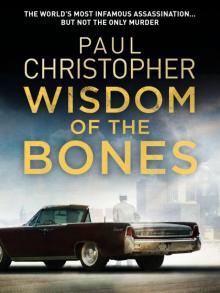 Wisdom of the Bones
Wisdom of the Bones The House of Special Purpose
The House of Special Purpose The Second Assassin
The Second Assassin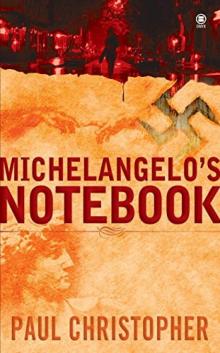 Michelangelo's Notebook
Michelangelo's Notebook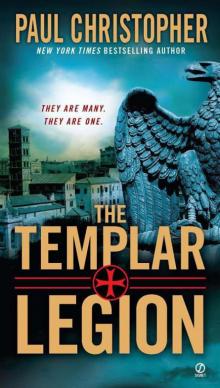 Templar Legion
Templar Legion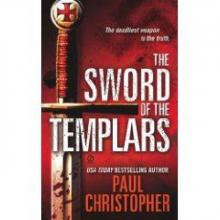 The Sword of the Templars t-1
The Sword of the Templars t-1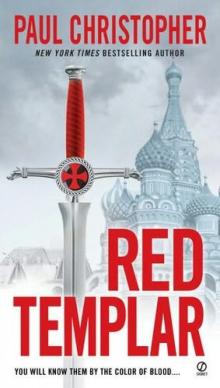 Red Templar
Red Templar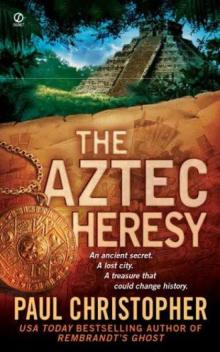 The Aztec Heresy
The Aztec Heresy The Templar Legion
The Templar Legion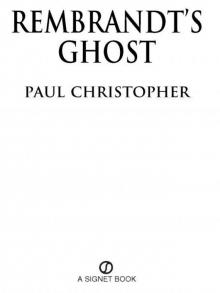 Rembrandt's Ghost
Rembrandt's Ghost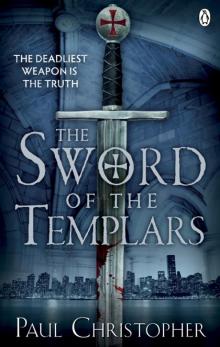 Sword of the Templars
Sword of the Templars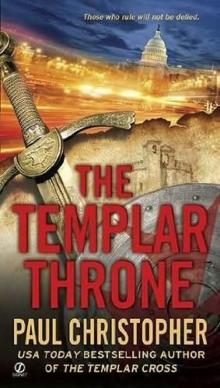 The Templar throne t-3
The Templar throne t-3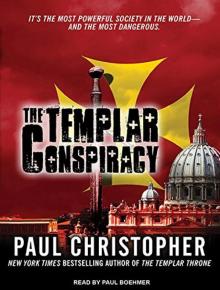 The Templar Conspiracy
The Templar Conspiracy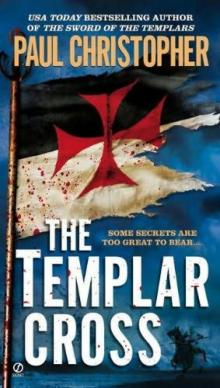 The Templar Cross t-2
The Templar Cross t-2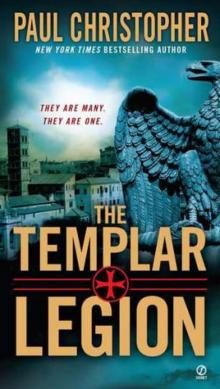 The Templar Legion t-5
The Templar Legion t-5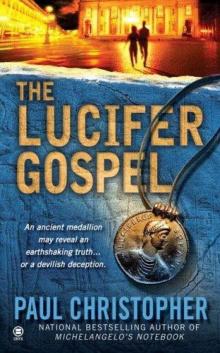 The Lucifer Gospel
The Lucifer Gospel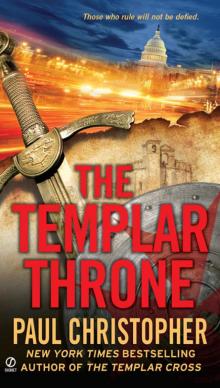 Templar Throne
Templar Throne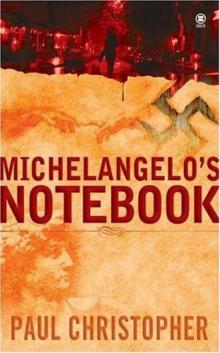 Michelangelo_s Notebook fr-1
Michelangelo_s Notebook fr-1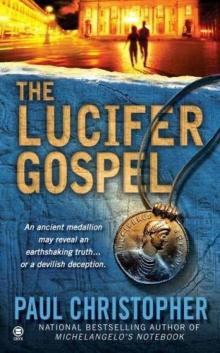 The Lucifer Gospel fr-2
The Lucifer Gospel fr-2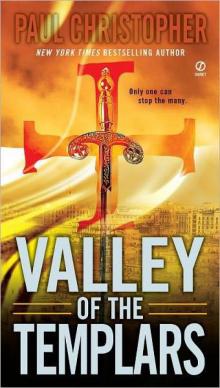 Valley of the Templars ts-7
Valley of the Templars ts-7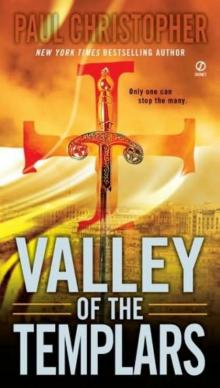 Valley of the Templars
Valley of the Templars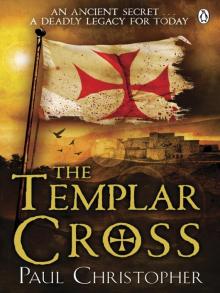 Templar Cross
Templar Cross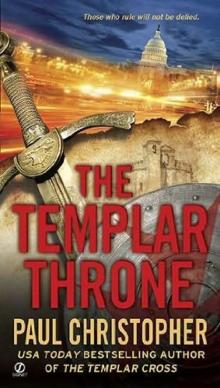 The Templar Throne
The Templar Throne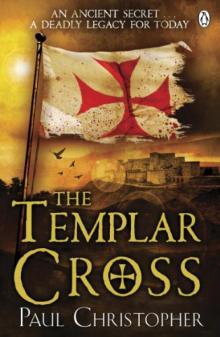 The Templar Cross
The Templar Cross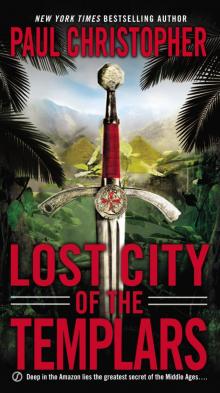 Lost City of the Templars
Lost City of the Templars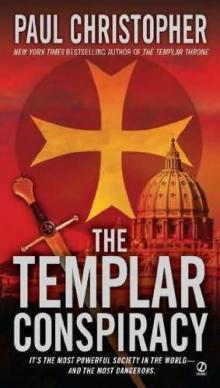 The Templar conspiracy t-4
The Templar conspiracy t-4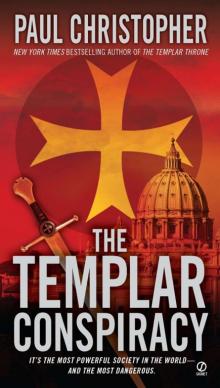 Templar Conspiracy
Templar Conspiracy